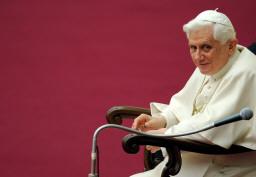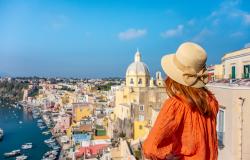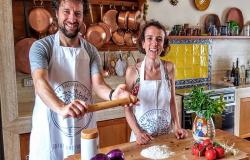Pope Benedict XVI is ''not alone'', Vatican Secretary of State Tarcisio Bertone said Friday after the world's media picked up on suggestions in a personal letter that the pope felt isolated.
In an unusual personal letter to Catholic bishops on Thursday, the pope said he felt he had been ''treated hatefully, without misgiving or restraint'' by some Catholics after he lifted the excommunication of four ultra-traditionalist bishops whose society broke with Rome over the liberal reforms of the Second Vatican Council.
''The pope is not alone, all his closest collaborators are loyally faithful to (him) and profoundly united with him,'' Bertone stressed Friday.
He said Benedict also felt ''the communion of many bishops in the world, despite some unpleasant voices'', which Bertone said were ''perhaps due to a lack of faith in the pope and the decisions he makes, which he does fully aware of the mission he is undertaking in front of God''.
Many Catholic bishops rallied to express their sympathy with the pope as a result of the letter.
The president of the Congregation for Divine Worship and the Discipline of the Sacraments, Cardinal Antonio Canizares, delivered a letter in which the congregation expressed their ''unwavering faith'' in the pontiff.
''We share the bitterness over the suffering caused to His Holiness,'' Canizares said.
Around 100 bishops participating in a Vatican conference organised by the Pontifical Council for Social Communication also wrote a letter delivered to the pope by council head Msgr Claudio Maria Celli.
''The bishops wanted to express closeness, devotion and affection for Benedict XVI,'' Celli said.
''They didn't enter into discussion about the matter (of the bishops' rehabilitation), they simply wanted to make their loyalty clear to the pope and let him know he is an example for them''.
Benedict rehabilitated the four bishops in January as a first step towards bringing the breakaway Society of St Piux X back to the Church, but some critics saw the move as a willingness by the pope to reverse the Council reforms.
The Second Vatican Council of 1962-65 tried to equip the Church for life in the modern world and introduced reforms in liturgy, ecumenism, inter-religious dialogue and religious liberty.
Among the changes was the shift from the 'Tridentine' or Latin Mass towards ceremonies held in modern languages. The German-born pope is himself an admirer of the traditional rites in Latin and his initiative to allow its return - as an option alongside the modern mass - had been expected almost since he was elected in April 2005.
The rehabilitation of the bishops also caused tensions with Jews after it was revealed that one of them, Briton Richard Williamson, was a Holocaust denier, although diplomatic efforts by the Vatican have largely smoothed over the row.










